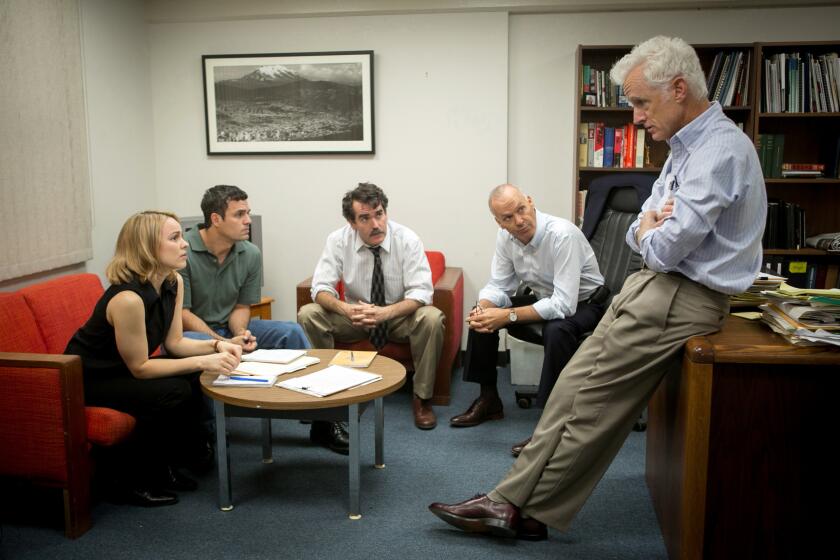Buffett rebuffs efforts to rate corporate conduct
OMAHA — Warren E. Buffett, chairman of Berkshire Hathaway Inc., said Sunday that he regarded efforts to rate the performance of companies on social, human rights or environmental measures to be of dubious merit and would not consider such factors when selecting investments.
“I don’t know how I would rate Exxon versus Chevron versus BP,” he said at a news conference one day after Berkshire’s annual meeting. “It’s very difficult to judge the actions of companies that act on thousands of things every day.”
A Times investigation published Friday found that about $56.4 billion, or 87%, of Berkshire’s publicly disclosed stock holdings was invested in companies criticized by services that research corporate conduct for investors. These services found that the companies profited from activities such as lax environmental practices and human rights abuses.
The Times found that the companies often acted against the goals or philosophy of the Bill & Melinda Gates Foundation, to which Buffett has pledged most of his personal fortune.
Buffett and Berkshire Vice Chairman Charles Munger were asked whether moral suasion, rather than divestment, might push companies to improve their practices, particularly ones that harm Gates Foundation goals.
“I don’t think that the people who do that philanthropy are all that good at knowing whether they are doing more good than harm,” Munger said. “If you put a gun to my head and asked which one has done more good for the world, the Ford Foundation or Exxon, I’d have no hesitation in saying Exxon.”
Exxon Mobil Corp. has been criticized by numerous research groups that evaluate performance based on environmental, human rights and other criteria.
“It’s ridiculous when people say one major oil company is more ‘pure’ than another,” Buffett said. “It gets very hard to discriminate.” And that logic, he said, extends to all sectors, including the one category that the Gates Foundation refuses to invest in — tobacco.
A few years ago, Buffett said, he considered buying a tobacco company in Tennessee. He said he would invest in such companies in the future if he thought it would be profitable.
Berkshire subsidiary General Re Corp. holds a small investment in Altria Group Inc., the nation’s leading cigarette maker.
On Saturday, Berkshire shareholders, at Buffett’s urging, defeated a proposal that would have required the company to sell its $3.3-billion stake in PetroChina Co., a subsidiary of a Chinese government firm that dominates Sudan’s oil industry.
Peace activists have said divestment from PetroChina would help end the Darfur conflict — in which the Sudanese military has engaged in genocide, according to the U.S.
Buffett, widely regarded as an ethical investor for his positions on executive pay and corporate governance, reiterated his position that divestment from PetroChina would not be useful to change corporate behavior. He said moral suasion was fruitless.
“When PetroChina issued shares [of stock] two years ago, I wrote to the company and said, ‘This is a lousy idea,’ ” Buffett said. PetroChina management issued new shares.
He said he held Berkshire’s subsidiaries to a high standard but that he could not influence any other company’s behavior, even one in which he is a major shareholder, like PetroChina.
Experts in social investing say corporations have often adopted new policies after shareholder complaints.
Buffett “is ignoring the positions of thousands of companies and of investors with tens of trillions of dollars who strongly believe that environmental, social and governance issues can and do affect shareholder value,” said Timothy Smith, chairman of the Social Investment Forum, an association of more than 600 financial institutions, research companies and foundations.
“Companies are saying, ‘We have to address these issues — they affect our bottom line in the long term,’ ” he said. “They are saying, ‘It’s our fiduciary duty to address them.’ ”
charles.piller@latimes.com






